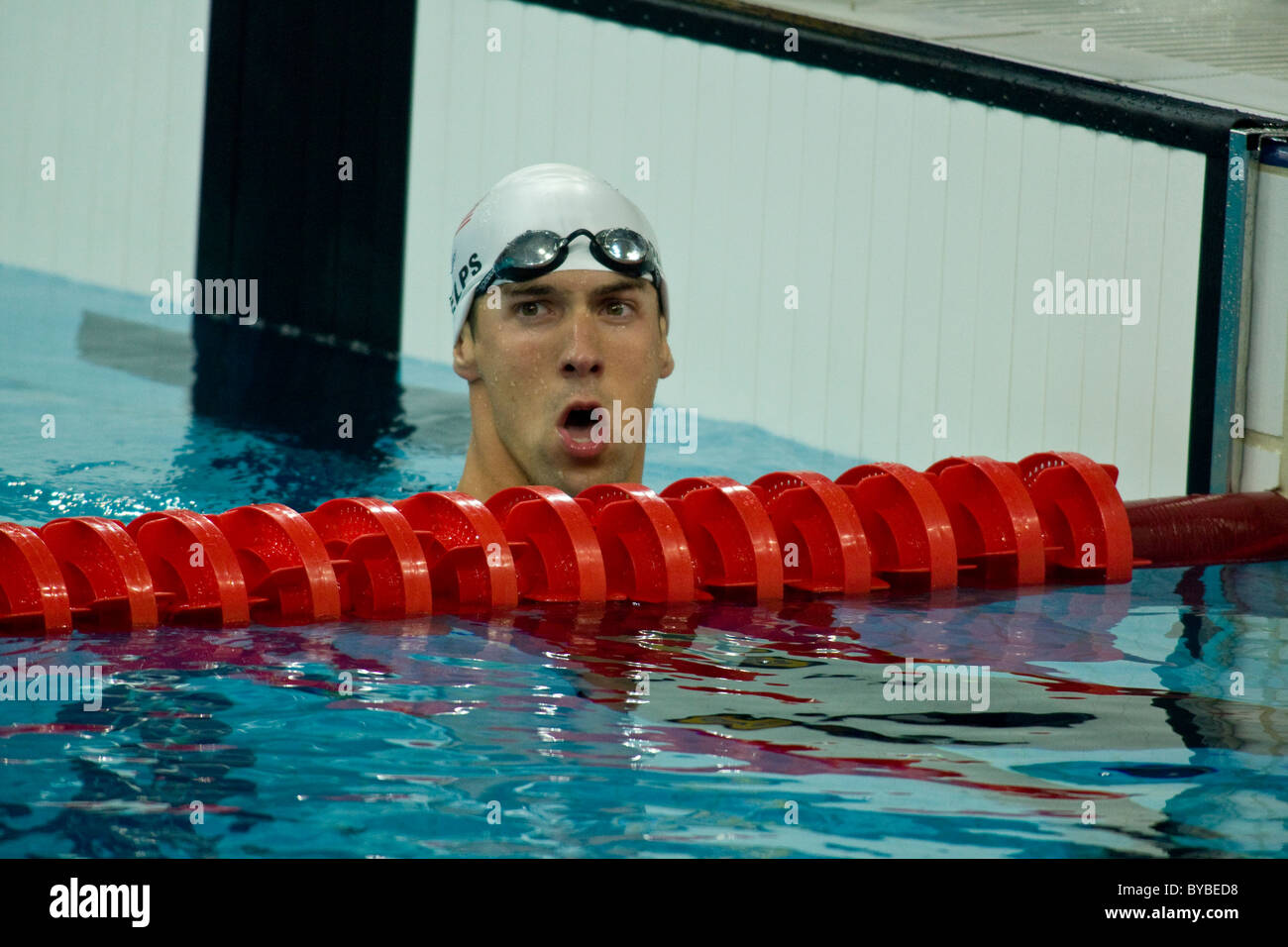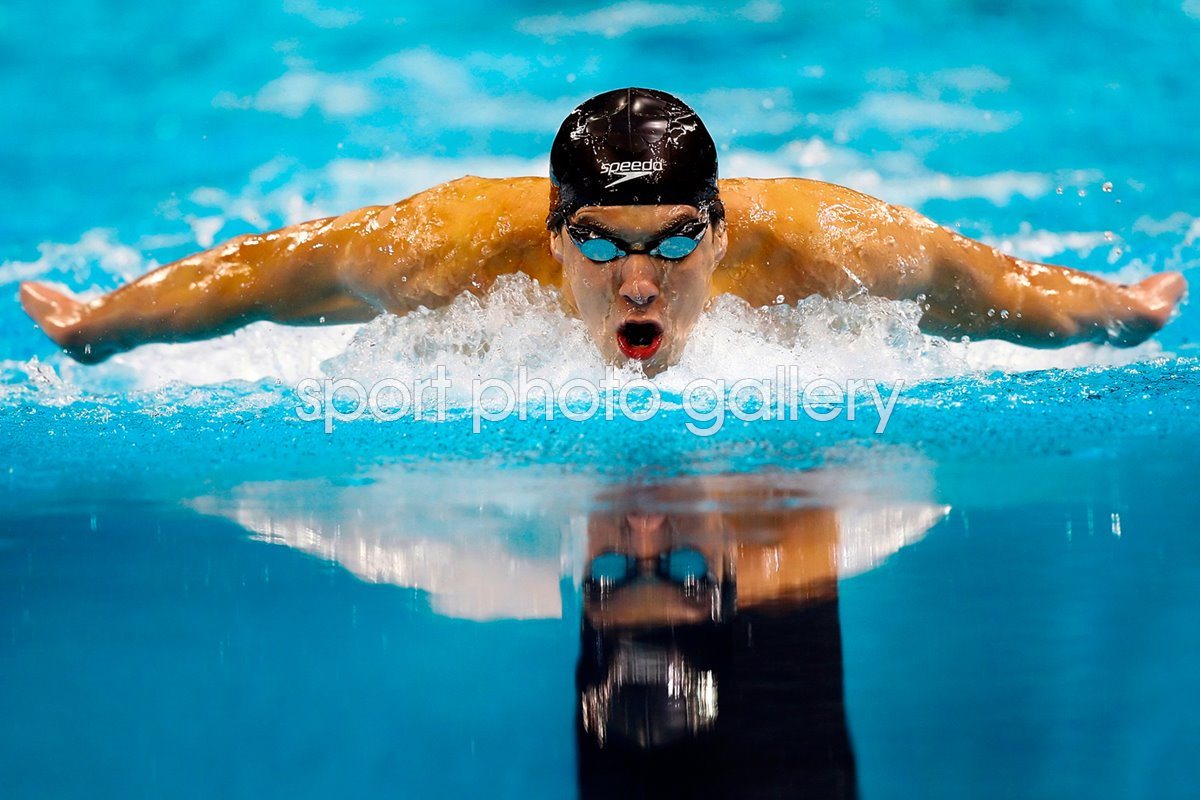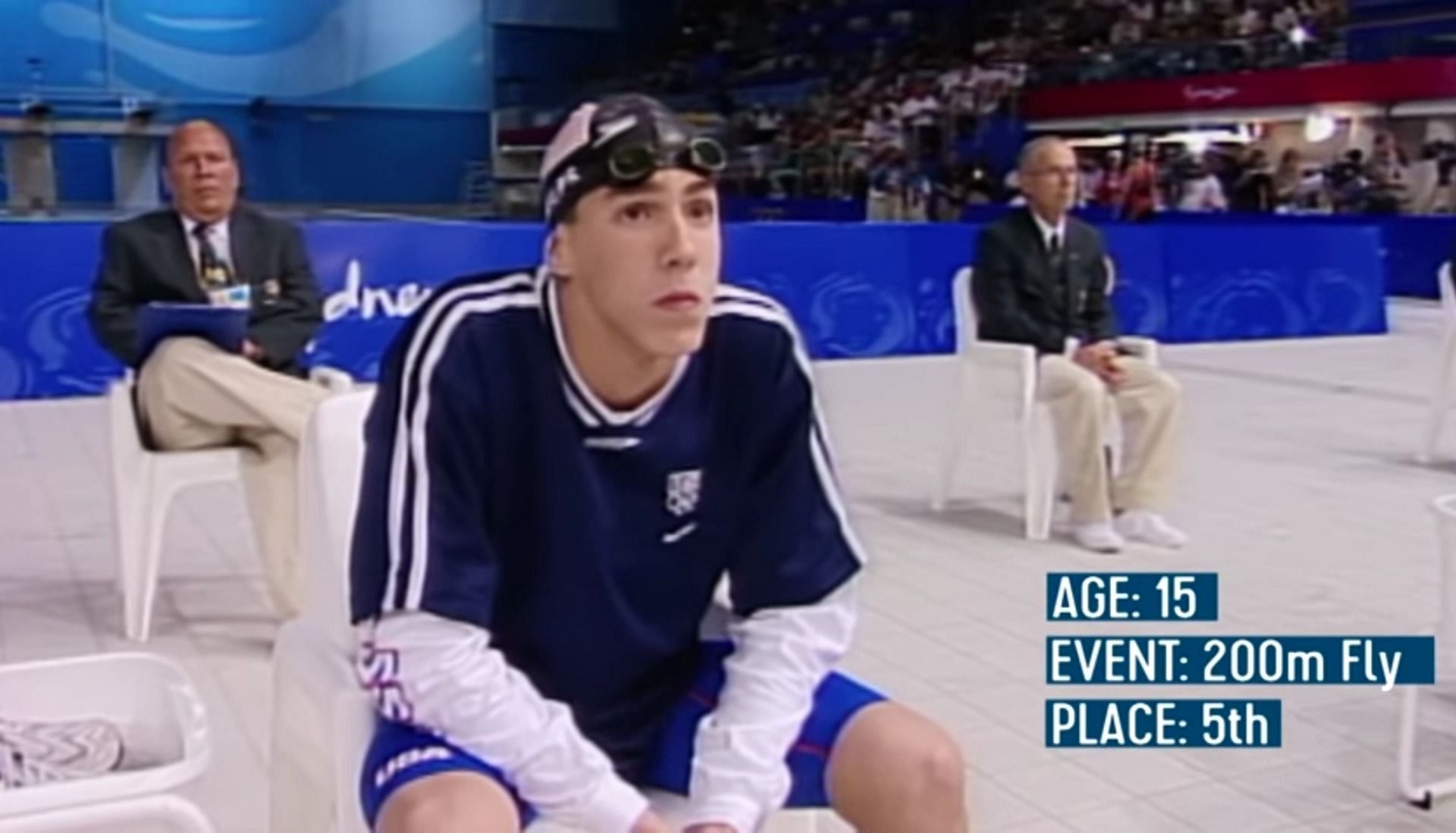When Michael Phelps dove into the water at the Beijing Olympics in 2008, he wasn't just competing—he was making history. The 2008 Summer Olympics will forever be remembered as the stage where Phelps solidified his legacy as the greatest swimmer of all time. With eight gold medals in a single Olympics, he shattered records and left the world in awe. But how did he do it? Let's dive in and uncover the story behind the man who redefined swimming excellence.
There’s something magical about watching an athlete dominate on the biggest stage in the world. For Michael Phelps, the 2008 Beijing Olympics was his moment to shine brighter than ever before. This wasn’t just about winning—it was about rewriting the rulebook of what’s possible in sports. His journey to Beijing wasn’t easy, but his determination and focus turned him into a legend.
Before we dive deeper into Phelps’ incredible performance, let’s take a moment to appreciate the sheer magnitude of his achievement. Winning eight gold medals in a single Olympics? It’s not just impressive—it’s borderline unbelievable. But Phelps didn’t just win; he dominated, breaking records left and right. This article will explore his journey, the challenges he faced, and the impact of his performance on the world of swimming.
Read also:Obama Height The Real Story Behind The Numbers
Biography of Michael Phelps: The Man Behind the Legend
Before we talk about his legendary performance in Beijing, let’s get to know the man behind the medals. Michael Fred Phelps II was born on June 30, 1985, in Baltimore, Maryland. From a young age, it was clear that Phelps was destined for greatness. His parents, Fred and Debbie Phelps, quickly noticed his natural talent in the water. By the age of 7, he was already swimming competitively, and by 15, he became the youngest American male to make the U.S. Olympic team since 1932.
But Phelps’ journey wasn’t just about natural talent. It was about hard work, dedication, and an unrelenting drive to be the best. His coach, Bob Bowman, played a crucial role in shaping him into the swimmer we know today. Together, they worked tirelessly to refine his technique, improve his endurance, and build the mental toughness needed to compete at the highest level.
Data and Facts About Michael Phelps
| Full Name | Michael Fred Phelps II |
|---|---|
| Date of Birth | June 30, 1985 |
| Place of Birth | Baltimore, Maryland, USA |
| Height | 6'4" (193 cm) |
| Weight | 190 lbs (86 kg) |
| First Olympic Appearance | 2000 Sydney Olympics |
| Total Olympic Medals | 28 (23 gold, 3 silver, 2 bronze) |
These stats don’t just tell the story of a swimmer—they tell the story of a legend. Phelps’ journey from a young boy in Baltimore to the most decorated Olympian of all time is nothing short of inspiring.
Michael Phelps Swimming Olympics 2008: The Lead-Up
The road to Beijing wasn’t easy for Phelps. Leading up to the 2008 Olympics, he faced intense scrutiny and high expectations. After his stellar performance in Athens in 2004, where he won six gold and two bronze medals, the world was watching to see if he could top himself. The pressure was immense, but Phelps thrived under it.
His preparation for Beijing was nothing short of legendary. He trained harder than ever before, focusing not just on his physical abilities but also on his mental toughness. Phelps knew that winning eight gold medals wouldn’t just require speed—it would require strategy, precision, and an unwavering belief in himself.
Key Events Leading to Beijing
- 2007 World Championships: Phelps won seven gold medals, setting the stage for his dominance in Beijing.
- Training Regimen: Phelps trained six days a week, often swimming over 80,000 meters per week.
- Mental Preparation: He worked with sports psychologists to develop the mental resilience needed to handle the pressure of the Olympics.
By the time he arrived in Beijing, Phelps was ready to make history. But little did anyone know just how monumental his achievement would be.
Read also:Cruel Intentions Cast A Deep Dive Into The Stars That Made The Movie Iconic
Michael Phelps Swimming Olympics 2008: The Races
The 2008 Beijing Olympics will forever be remembered as the stage where Phelps rewrote the record books. Over the course of just nine days, he competed in eight events, winning gold in every single one. Here’s a breakdown of his incredible performances:
Day 1: 400m Individual Medley
Phelps kicked off his Olympic campaign with a bang, winning gold in the 400m individual medley. He broke his own world record in the process, setting the tone for what was to come. Watching him dominate from the very first race was a sign of things to come.
Day 2: 4x100m Freestyle Relay
Phelps’ second gold came in the 4x100m freestyle relay. Although the U.S. team faced stiff competition from France, Phelps anchored the team to victory, securing his second gold of the Games.
Day 3: 200m Freestyle
In the 200m freestyle, Phelps faced off against his arch-rival, Ian Thorpe. Despite Thorpe’s absence due to retirement, Phelps still faced tough competition. He won convincingly, adding another gold to his collection.
Day 4: 200m Butterfly
Phelps’ fourth gold came in the 200m butterfly, an event he had dominated for years. His performance was nothing short of spectacular, breaking his own world record once again.
Day 5: 4x200m Freestyle Relay
In the 4x200m freestyle relay, Phelps helped the U.S. team secure another gold medal. His split time was the fastest in the race, showcasing his incredible endurance.
Day 6: 200m Individual Medley
Phelps’ sixth gold came in the 200m individual medley, an event he had won in Athens four years earlier. His performance was flawless, leaving his competitors in awe.
Day 7: 100m Butterfly
Perhaps the most dramatic race of Phelps’ Olympic campaign came in the 100m butterfly. Phelps narrowly edged out Milorad Čavić of Serbia, winning by just 0.01 seconds. The race was so close that it was initially thought Čavić had won, but upon further review, Phelps was declared the victor.
Day 8: 4x100m Medley Relay
In the final race of the Games, Phelps anchored the U.S. team to victory in the 4x100m medley relay. His performance was nothing short of spectacular, securing his eighth gold medal and cementing his place in history.
The Impact of Michael Phelps’ Performance
Phelps’ performance in Beijing wasn’t just about winning medals—it was about inspiring a generation. His dominance in the pool showed the world what’s possible when hard work, dedication, and talent come together. But the impact of his performance extended far beyond the swimming world.
Phelps’ achievement inspired millions of young athletes around the world to pursue their dreams. His story showed that with hard work and perseverance, anything is possible. He became a symbol of excellence, pushing the boundaries of what was thought possible in sports.
Legacy and Records
- Most Gold Medals in a Single Olympics: Phelps’ eight gold medals in Beijing remain unmatched in Olympic history.
- Most Olympic Medals Overall: With 28 medals, Phelps holds the record for the most medals won by any athlete in Olympic history.
- Breaking Records: Phelps broke numerous world records during his career, setting new standards for excellence in swimming.
His legacy extends beyond the numbers. Phelps became a role model for millions, proving that with the right mindset and work ethic, anyone can achieve greatness.
Challenges Faced by Michael Phelps
While Phelps’ success in Beijing was nothing short of spectacular, it wasn’t without its challenges. Leading up to the Games, he faced intense scrutiny and high expectations. Many doubted whether he could live up to the hype, but Phelps proved them all wrong.
One of the biggest challenges he faced was the pressure of expectation. After his success in Athens, the world was watching to see if he could top himself. Phelps handled the pressure with grace, focusing on his training and preparation. He knew that the key to success was staying focused and believing in himself.
Dealing with Adversity
- 100m Butterfly Controversy: The race against Milorad Čavić was one of the most controversial moments of the Games. Phelps’ victory by just 0.01 seconds sparked debates about the fairness of the decision.
- Media Scrutiny: Phelps faced intense media attention leading up to the Games, but he managed to stay focused on his goals.
- Personal Challenges: Off the pool, Phelps dealt with personal challenges, including a DUI arrest in 2004. He used these experiences as motivation to push himself harder.
Despite the challenges, Phelps remained focused on his goals. His ability to handle adversity and come out on top is a testament to his mental toughness and determination.
Michael Phelps Swimming Olympics 2008: The Aftermath
After his incredible performance in Beijing, Phelps became a global icon. His achievement inspired millions and cemented his place in history as the greatest swimmer of all time. But the aftermath of Beijing wasn’t just about celebration—it was about reflection and looking forward to the future.
Phelps’ success in Beijing set the stage for his future Olympic campaigns. He went on to compete in London in 2012, where he won four gold and two silver medals, bringing his total Olympic medal count to 22. His retirement in 2016 marked the end of an era, but his legacy continues to inspire athletes around the world.
Life After Swimming
Since retiring from competitive swimming, Phelps has focused on various business ventures and philanthropy. He founded the Michael Phelps Foundation, which aims to promote water safety and teach children how to swim. His work off the pool has been just as impactful as his achievements in it.
Why Michael Phelps’ Performance Matters
Phelps’ performance in Beijing wasn’t just about winning medals—it was about redefining what’s possible in sports. His achievement showed the world that with the right mindset and work ethic, anything is possible. But his impact extends beyond the pool.
Phelps’ story is one of inspiration and perseverance. He faced numerous challenges throughout his career, both on and off the pool, but he never let them define him. Instead, he used them as motivation to push himself harder and achieve greatness.
Lessons from Michael Phelps
- Hard Work Pays Off: Phelps’ success is a testament to the power of hard work and dedication.
- Believe in Yourself: Phelps’ belief in himself was the driving force behind his success.
- Handle Adversity Gracefully: Despite facing numerous challenges, Phelps remained focused on his goals.
His story is a reminder that with the right mindset and work ethic, anyone can achieve greatness.
Conclusion: The Legacy of Michael Phelps
Michael Phelps’ performance at the 2008 Beijing Olympics will forever be remembered as one of the greatest achievements in sports history. His eight gold medals not only broke records but also inspired millions around the world. But his legacy extends beyond the medals—he became a symbol of excellence, pushing the boundaries of what’s possible in sports.
As we reflect on Phelps’ incredible journey, it’s clear that his impact goes far beyond the pool. He inspired a generation of athletes to pursue their dreams and showed the world what’s possible with hard work and dedication. So, the next time you face a challenge, remember the story of Michael Phelps and let it inspire you to push yourself harder and achieve greatness.
Call to Action: What did you think about Michael Phelps’ performance in Beijing? Leave a comment below and let us know your thoughts. Don’t forget to share this article with your friends and family so they can learn about the greatest swimmer of all time!
Table


